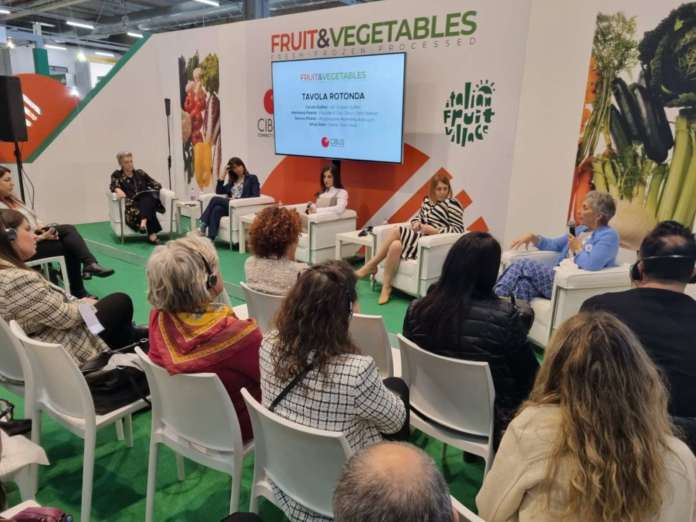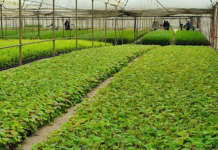Presente e futuro dell’agrifood a confronto in un panel di esperte tutto al femminile, con l’innovazione come stella polare. Si è tenuto oggi, nell’area Fruit & Vegetables di Cibus Connecting Italy (pad. 5), l’incontro Quando il gioco si fa duro le donne iniziano a giocare. Cristina Lazzati, direttore responsabile di Mark Up, Gdoweek e Fresh Point Magazine, ha guidato il confronto in un racconto del settore a 360 gradi, dal seme alla tavola, dall’Italia all’Europa, dalla produzione alla distribuzione.
“L’obiettivo del convegno è stato far parlare le donne. Per innovare c’è bisogno di voci nuove, diverse e disruptive e la voce delle donne nell’agrifood è stata finora troppo poco ascoltata: è tempo di cambiare” fa sapere Cristina Lazzati. Sono 1300 i buyer attesi a Cibus Connecting Italy 2023, con l’ortofrutta che gioca un ruolo da protagonista come sottolineato in un nostro recente freshtalks.
L’evento ha puntato sul far emergere l’importanza di trovare nuove idee di business e opportunità di crescita. Sono intervenute Carola Gullino, ad Gruppo Gullino; Eleonora Graffione, presidente del Consorzio Coralis e consigliera Adm, GS1 Italy e Retail Institute; Marianna Palella, founder e ceo Citrus L’Orto Italiano; Rachele Tardani, genetista Blumen; Serena Pittella, responsabile Marketing Aop Luce; Simona Caselli, presidente Areflh-Assemblea delle regioni frutticole, orticole e floricole europee e Silvia Salvi, owner Salvi Vivai.
Silvia Salvi (Salvi Vivai): “Mancano figure specialistiche: più formazione nelle scuole”
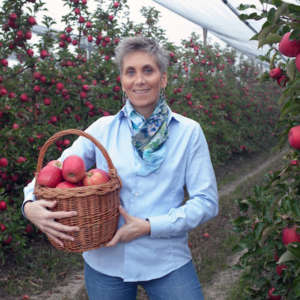
“Innovazione è il cambiamento che non dobbiamo subire ma esserne attivamente partecipi. Serve una filiera che coinvolga e parta dalla scuola, dalla formazione, prenda spunto dalle esigenze delle aziende agricole per preparare la crescita professionale dei giovani. C’è forte carenza di personale competente, di figure più profilate e di fabbisogno qualitativo e non solo quantitativo. C’è l’esigenza di creare una sinergia per aumentare le competenze e le specializzazioni. Occorre pertanto un dialogo e interazione tra settore agricolo e scuola. Ci deve essere un’informazione e approfondimento del mondo agricolo a livello scolastico già nell’ambito delle scuole medie, per indirizzare e avvicinare gli studenti al nostro mondo”.
Carola Gullino (Gruppo Gullino): “La sfida è preservare, fare di più con meno”
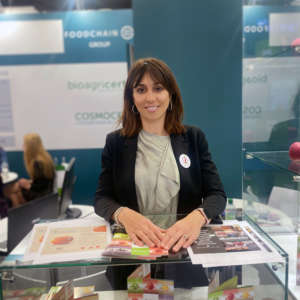
“Le donne possono rappresentare un motore propulsivo importante nel cogliere la necessità di un cambiamento radicale, un obiettivo che prescinde dalle categorie nelle quali abbiamo pensato il passato e il presente. Tra cambiamenti climatici e risorse che si esauriscono bisogna cercare strade innovative. Innovare e preservare devono essere sopra i nostri obiettivi primari. Il suolo è una risorsa limitata e non rinnovabile ed è essenziale per conservare la biodiversità. L’acqua è un bene prezioso e bisogna cercare di recuperarla e non sprecarla. La sfida è fare di più con meno, quindi stressare meno i terreni; fare ricerca per sapere quale coltivazione è migliore per un determinato terreno e perseguire l’efficienza economica e ambientale”.
Serena Pittella (Aop Luce): “Tutta la filiera deve partecipare al cambiamento”
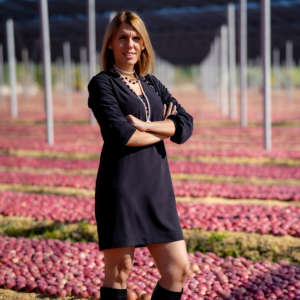
“I cambiamenti climatici e i costi delle materie prime rendono complesso fornire un prodotto di qualità elevata in maniera stabile nel tempo e in modo remunerativo per il produttore. L’innovazione deve concretizzarsi in tutte le fasi della filiera, che deve lavorare in modo sinergico per affrontare queste problematiche, altrimenti sarà complicata la sopravvivenza degli agricoltori. Ovvero la genetica mettendo a disposizione varietà sempre più performanti; la produzione accogliendo l’innovazione, operando in modo sostenibile e cercando di ridurre i costi attraverso un controllo di gestione che mira all’efficienza; la distribuzione, comprendendo le necessità dei fornitori a monte, permettendone la giusta remunerazione. Serve innovazione poi nella comunicazione: il prodotto ortofrutticolo va adeguatamente pagato e deve uscire dalla considerazione di essere una mera commodity”.
Eleonora Graffione (Consorzio Coralis): “AI, IoT e blockchain per la tracciabilità, ma anche km zero per l’ambiente”
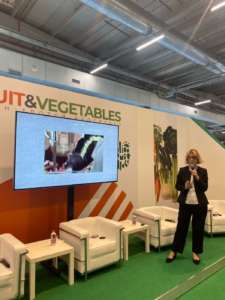
“A cosa non possiamo più rinunciare? Io credo alla tracciabilità dei prodotti, perché questa ci permette di comprendere l’impatto che un nostro acquisto ha sull’intero pianeta. Per farlo, oggi possiamo avvalerci di nuove tecnologie come l’intelligenza artificiale, la blockchain e l’Internet of Things (IoT), che potrebbero rivoluzionare il modo in cui viene venduta l’ortofrutta. L’intelligenza artificiale potrebbe, per esempio, essere utilizzata per monitorare la produzione e il trasporto dei prodotti, prevedere la domanda dei consumatori e ottimizzare la gestione della catena di approvvigionamento. La blockchain per garantire la tracciabilità dei prodotti e la loro provenienza, aumentando la trasparenza e la fiducia dei consumatori.
Ma ragionando a 360 gradi, come ragionano le donne, per prima cosa dobbiamo promuovere la valorizzazione dei prodotti locali e stagionali, che consentono di ridurre l’impatto ambientale, in modo da favorire lo sviluppo economico delle comunità rurali e delle economie locali. La vendita dell’ortofrutta deve essere sempre più orientata verso la sostenibilità ambientale, la riduzione degli sprechi alimentari e la promozione di una dieta equilibrata e salutare. Il tutto garantendo condizioni di lavoro dignitose per gli agricoltori e per i lavoratori della distribuzione organizzata.
Rachele Tardani (Blumen): “La genetica a supporto del patrimonio di biodiversità italiano”
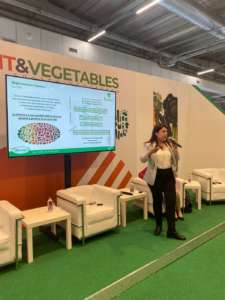
“La vera innovazione è la valorizzazione e la salvaguardia del nostro patrimonio genetico. Il nostro Paese è ricco di varietà ortofrutticole che rappresentano una ricchezza unica che non possiamo sottovalutare. Il nostro impegno è quello di migliorare le caratteristiche agronomiche, nutrizionali e qualitative dei nostri prodotti attingendo dalla grande biodiversità che il nostro Paese ci offre e utilizzando al tempo stesso le più moderne tecniche di miglioramento genetico in sinergia con importanti realtà del mondo della ricerca pubblica nazionale e internazionale.
In tal modo siamo in grado di fornire agli agricoltori varietà in grado di competere sui mercati mantenendo al tempo stesso la nostra identità. Inoltre, grande attenzione deve essere rivolta ai cambiamenti e alle emergenze che stanno caratterizzando gli ultimi anni e che rendono sempre più complessa la fase della produzione primaria. È necessario che tutti gli attori della filiera agroalimentare lavorino insieme per trovare soluzioni comuni che permettano di rispondere velocemente ai grandi mutamenti in atto così da garantire sicurezza alimentare e prodotti di qualità per il consumatore, e al tempo stesso il giusto reddito per agricoltori.
Simona Caselli (Areflh): “Non perdere i talenti tra le donne nella bioeconomia, genetica e digitale”
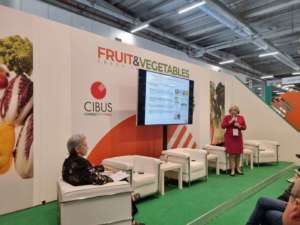
“Le donne stanno portando una forte innovazione nel settore ortofrutticolo su diversi piani, tutti a mio avviso molto rilevanti. C’è un approccio peculiare alla comunicazione del valore dell’ortofrutta, contro la sua banalizzazione e svilimento, promuovendone sia le modalità produttive con riferimento alla sostenibilità delle tecniche in campo sia nel resto della filiera, ma dando molta importanza anche agli aspetti nutrizionali, all’alimentazione dei bambini, all’estetica con cui la si propone e alla funzione sociale nel favorire diete sane.
C’è però anche un grande impegno, di cui si parla troppo poco, sul fronte della ricerca e innovazione che coinvolge molte donne ricercatrici, e molte imprenditrici nell’applicazione in campo delle tecniche di agricoltura di precisione sempre più essenziali per un’agricoltura sostenibile. Quello ortofrutticolo è un settore che occupa moltissime donne, spesso per un lavoro manuale che richiede precisione e delicatezza, ma non ci possiamo permettere di perdere i talenti delle donne nella bioeconomia, nella genetica e nel digitale che saranno sempre più essenziali per la transizione climatica in questo settore”.
—-
The future of female agrifood at Cibus Connecting Italy 2023
‘When the going gets tough, women get going’ took place the first day of the fair. This conference was moderated by Cristina Lazzati, director in charge of of Mark Up, Gdoweek, and Fresh Point Magazine, with a focus on innovation
Present and future of agrifood in an all-female panel of experts, with innovation as the guiding star. The meeting When the going gets tough, women get going was held today in the Fruit & Vegetables area of Cibus Connecting Italy (hall 5). Cristina Lazzati, director in charge of Mark Up, Gdoweek, and Fresh Point Magazine led the discussion concerning an in-depth story of the sector, from the seed to the table, from Italy to Europe, from production to distribution.
Cristina Lazzati explained: ‘The goal of the conference was to get women to speak. To innovate, new, different, and disruptive voices are needed and the voice of women in agrifood has so far been listened to too little: it’s time for a change.
The event focused on bringing out the importance of finding new business ideas and growth opportunities. The following experts took part in the conference: Carola Gullino, CEO of Gruppo Gullino; Eleonora Graffione, president of Coralis Consortium and adviser for Adm, GS1 Italy, and Retail Institute; Marianna Palella, founder and CEO of Citrus L’Orto Italiano; Rachele Tardani, geneticist for Blumen; Serena Pittella, responsible person for Marketing Aop Luce; Simona Caselli, president of Areflh-Assembly of European fruit, horticultural, and flower growing regions, and Silvia Salvi, owner Salvi Vivai.
Silvia Salvi (Salvi Vivai): ‘There is a lack of specialized figures: more training in schools is needed’
‘Innovation is the change that we must not undergo, but actively participate in it. We need a supply chain that involves and starts from school, from training, takes its cue from the needs of farms to prepare the professional growth of young people. There is a strong shortage of competent personnel, of more profiled figures, and of qualitative and not just quantitative needs. There is a need to create a synergy to increase skills and specializations. Therefore, both dialogue and interaction between agricultural sector and school are needed. There must be information and in-depth study of the agricultural world at school level already in middle school, to direct and bring students closer to our world’.
Carola Gullino (Gullino Group): ‘The challenge is to preserve, to do more with less’
‘Women can represent an important driving force in grasping the need for radical change, an objective that is independent of the categories in which we have considered both past and present. Between climate change and resources that are depleting, innovative ways must be sought. Innovating and preserving must be our primary goals. Soil is a limited and non-renewable resource and it is essential for conserving biodiversity. Water is a precious asset and we must try to recover it and not waste it. The challenge is to do more with less, therefore stressing the land less; do research to know which crop is best for a given land and pursue economic and environmental efficiency’.
Serena Pittella (Aop Luce): ‘The whole supply chain must participate in the change’
‘Climate change and cost of raw materials make it difficult to supply a high quality product in a stable manner over time and in a profitable way for the producer. Innovation must materialize in all phases of the supply chain, which must work in synergy to address these problems, otherwise the survival of farmers will be complicated. In short, genetics, by making increasingly performing varieties available; production, by welcoming innovation, operating in a sustainable way and trying to reduce costs through management control that aims at efficiency; distribution, understanding the needs of upstream suppliers, allowing for their right remuneration. Innovation is also needed in communication: fruit and vegetable products must be adequately paid for and must go beyond the consideration of being a mere commodity’.
Eleonora Graffione (Coralis Consortium): ‘AI, IoT and blockchain for traceability, but also local products for the environment’
‘What can we no longer give up? I believe in product traceability, because this allows us to understand the impact that one of our purchases has on the entire planet. To do this, today we can make use of such new technologies as artificial intelligence, blockchain, and Internet of Things (IoT), which could revolutionize the way fruit and vegetables are sold. Artificial intelligence could, for example, be used to monitor the production and transport of products, predict consumer demand, and optimize supply chain management. The blockchain guarantees the traceability of products and their provenance, increasing transparency and consumer confidence.
But considering the various aspects, as women do, first of all we must promote the enhancement of local and seasonal products, which allow us to reduce the environmental impact, in order to favour the economic development of rural communities and local economies. The sale of fruit and vegetables must be increasingly oriented towards environmental sustainability, reduction of food waste, and promotion of a balanced and healthy diet. All this while guaranteeing decent working conditions for farmers and workers in organized distribution.
Rachele Tardani (Blumen): ‘Genetics in support of the Italian biodiversity heritage’
‘True innovation is the enhancement and protection of our genetic heritage. Our Country is rich in fruit and vegetable varieties that represent a unique wealth, which we cannot underestimate. Our commitment is to improve the agronomic, nutritional, and qualitative characteristics of our products by drawing on the great biodiversity that our Country offers us and at the same time using the most modern genetic improvement techniques in synergy with important realities in the world of national and international public research.
In this way we are able to provide farmers with varieties that can compete in the markets while maintaining our identity. Furthermore, great attention must be paid to the changes and emergencies that have been characterizing the last few years and that make the primary production phase increasingly complex. It is necessary that all the players in the agrifood chain work together to find common solutions that allow for a rapid response to the great changes taking place, so as to guarantee food safety and quality products for the consumer, and at the same time the right income for farmers.
Simona Caselli (Areflh): ‘We cannot afford to lose the talents of women in bioeconomy, genetics, and digital world’
‘Women are bringing strong innovation to the fruit and vegetable sector on various levels, all of which are very relevant, in my opinion. There is a peculiar approach to communicating the value of fruit and vegetables, against its trivialization and debasement, promoting both production methods with reference to the sustainability of the techniques in the field and in the rest of the supply chain, but also giving great importance to the nutritional aspects, child nutrition, aesthetics with which it is proposed, and the social function in promoting healthy diets.
However, there is also a great commitment, about which too little is said, on the front of research and innovation, which involves many female researchers and many female entrepreneurs in the application in the field of precision agriculture techniques, which are increasingly essential for sustainable agriculture. The fruit and vegetable sector employs many women, often for manual work that requires precision and delicacy, but we cannot afford to lose the talents of women in bioeconomy, genetics, and digital world, which will be increasingly essential for the climate transition in this sector’.

